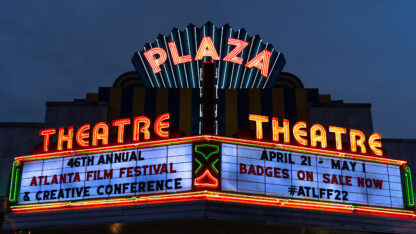Kabir Sehgal’s new film “Close the Loop” looks at the life and success of his father, Raghbir (R.K.) Sehgal. At the film’s opening, Kabir calls his father “the Indian Forrest Gump.” The film is based on Kabir’s best-selling book of the same name. “Close the Loop” will be screened on the Atlanta Film Festival’s opening night at the Carter Center on April 22. Both father and son joined “City Lights” host Lois Reitzes via Zoom to talk about R.K.’s singular life encompassing so many historical milestones and how his son went about capturing the story.
Interview highlights:
On R.K.’s nickname, “The Indian Forrest Gump:”
“My dad has a history of showing up to places and volunteering … My dad wasn’t just a civil engineer. He befriended people such as Ambassador Andrew Young, who he hired to work for him at Law Engineering; John Ehrlichman, an advisor to President Nixon; Joe Frank Harris, the former governor of Georgia — all were in my father’s orbit,” said Kabir. “Growing up as his son in Atlanta, I heard stories at the dinner table about my dad’s upbringing in India. Maharajah this and Gandhi that, and I was like, ‘This is a book. This is a movie one day.’”
Kabir said, “My dad’s story intersects with many, many world chapters, chapters important to Atlanta. For example, the Olympic Games. My dad was instrumental in helping bring the Olympic Games to Atlanta. The Iranian hostage situation — my dad, was in Iran during the Iranian Revolution. It goes on and on and on. So I hope when you see the film ‘Close the Loop’ … by seeing my father’s story, you see world events unfolding because my dad kept on showing up and volunteering for things.”







